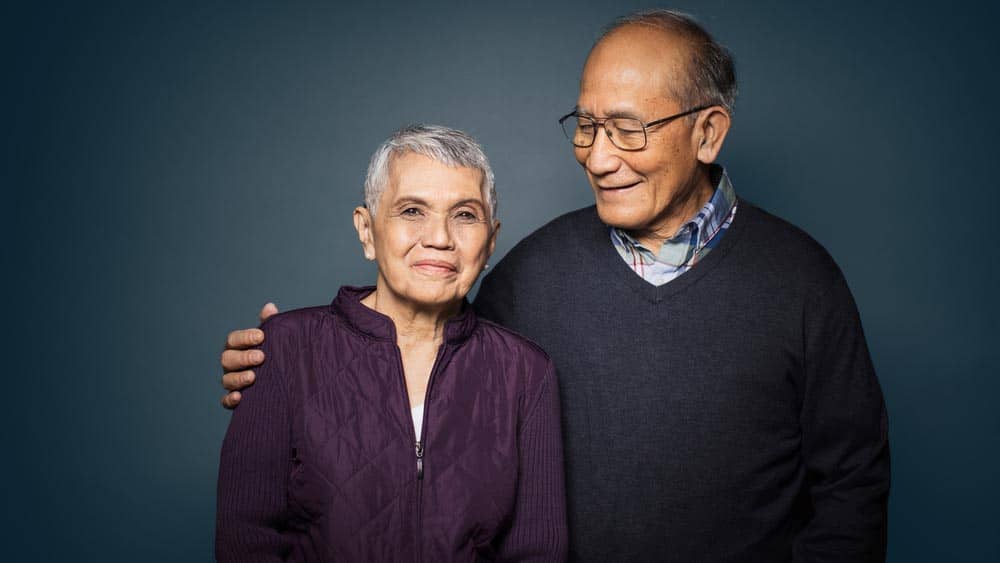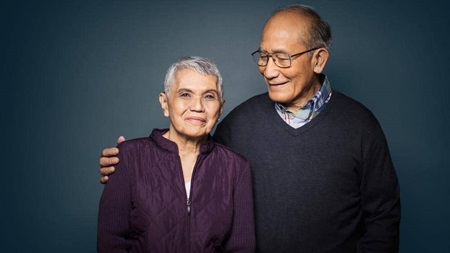

Caring for a Spouse
There’s a media stereotype of grouchy old couples getting on each other’s nerves after years of marriage—yet University of California, Berkeley researchers who studied marriages over the course of 25 years found “an emotionally positive trajectory for long-term married couples.” Psychology Professor Robert Levenson noted, “Older people in stable marriages are relatively happy and experience low rates of depression and anxiety. Marriage has been good for their mental health.”
But as we get older, we are more likely to have an illness or disability and need care from another person. When you are in a relationship, that caregiver is usually your spouse or partner. Spousal caregiving embodies love, devotion, and resilience, yet it also presents unique challenges that can test even the strongest of bonds.
Challenges of Spousal Caregiving:
- Emotional strain: The emotional toll of witnessing a spouse’s decline in health can be overwhelming. From feelings of grief and helplessness to guilt and frustration, caregivers often experience a rollercoaster of emotions that can be difficult to navigate alone.
- Physical demands: Providing care for a spouse often includes tasks that can be physically demanding. From assisting with mobility to managing medications and personal care, caregivers may find themselves stretched thin as they strive to meet their loved one’s needs.
- Financial stress: Balancing caregiving responsibilities with financial obligations can be a significant source of stress for spousal caregivers. Medical expenses, loss of income due to caregiving duties, and the need for additional support services can place a strain on the family’s finances.
- Social isolation: Caregiving can be an isolating experience, especially for someone who devotes all their time and energy to their partner’s needs. This isolation can lead to feelings of loneliness and disconnection from friends, family, and community support networks.
Tips for Making Spousal Caregiving Work:
Prioritize self-care: As a spousal caregiver, it’s essential to prioritize your own health and well-being. Remember that you cannot pour from an empty cup, so make time for self-care activities that nourish your body, mind, and spirit. Whether it’s taking a walk, practicing mindfulness, or seeking support from a therapist or support group, investing in your own well-being is essential for sustainable caregiving.
Communicate openly: Effective communication is key to navigating the challenges of spousal caregiving. Be open and honest with your spouse about your needs, limitations, and feelings. Encourage your partner to express their desires and concerns, and work together to find solutions that honor both of your needs and preferences.
Seek support: You don’t have to navigate the journey of spousal caregiving alone. Reach out to family members, friends, and community resources for support. Consider joining a caregiver support group where you can connect with others who understand your experiences and offer valuable insights and encouragement.
Explore respite care options: Taking breaks from caregiving is essential for preventing burnout and maintaining your own well-being. Explore respite care options that allow you to take time off while ensuring your spouse receives the care they need. Whether it’s hiring a professional caregiver or exploring adult day programs, respite care can provide much-needed relief and rejuvenation.
Embrace flexibility: Be willing to adjust your expectations and plans as circumstances change. Remember that it’s okay to ask for help. Embrace the moments of joy and connection that arise amidst the challenges and celebrate the strength and resilience that you and your spouse embody each day.
At Right at Home, we recognize the profound impact of spousal caregiving and are committed to supporting caregivers every step of the way. From personalized care plans to compassionate support services, we’re here to empower you to provide the best possible care for your loved one while prioritizing your own well-being. Together, we can navigate the challenges of spousal caregiving and create a fulfilling and meaningful journey for you and your partner.
